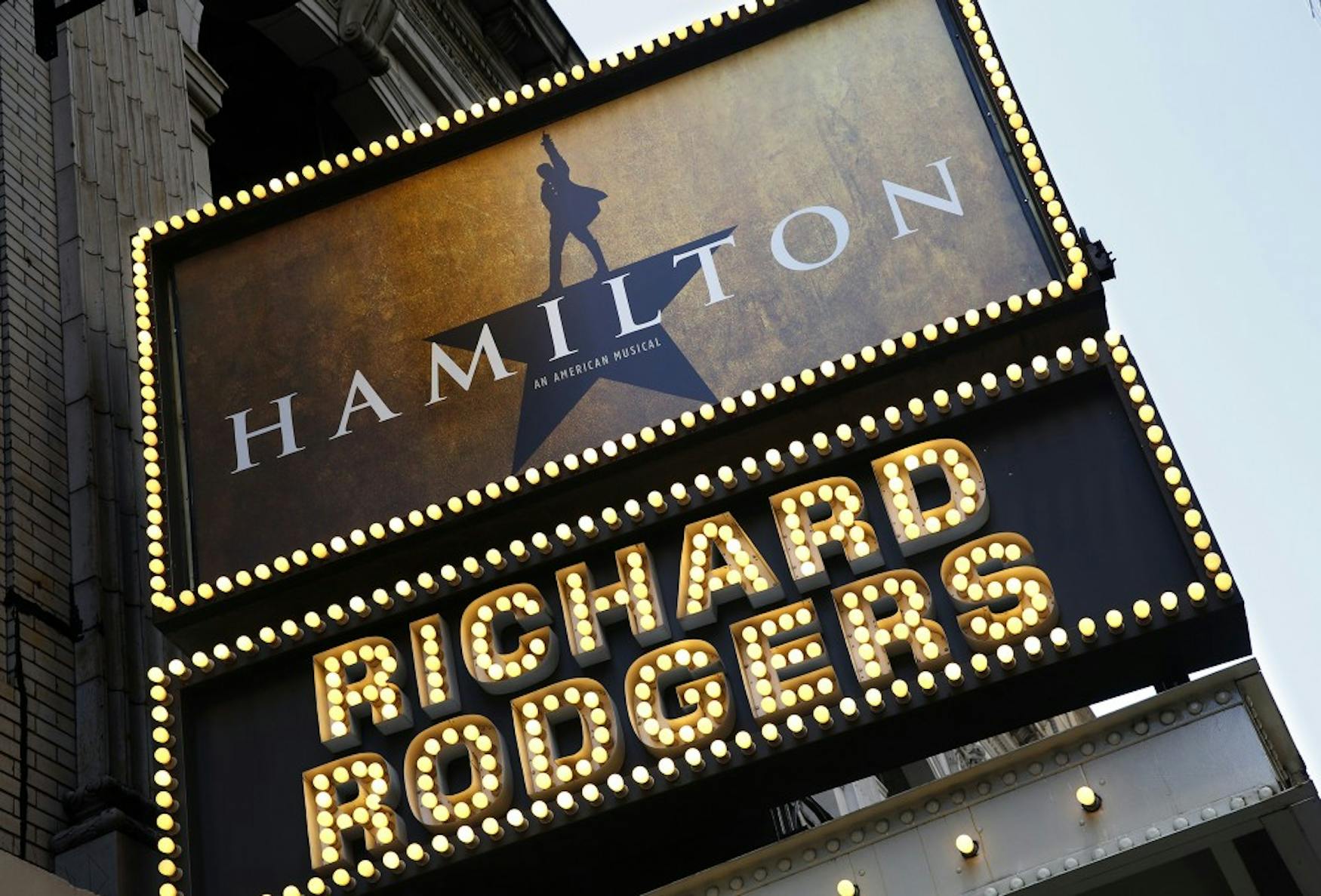Hamilton’ modernizes American History
There are few, if any, places where the name of a founding father prompts a crowd to rush to its feet. When Lin-Manuel Miranda’s character entered the stage at the Richard Rogers Theater in New York City, Broadway became one of those places. Following his entrance, the other characters noticed Miranda’s character and asked, “What’s your name, man?” Miranda replied, “Alexander Hamilton,” and the show took a quick pause as the audience roared.
Directed by Thomas Kail, Hamilton, a musical new to Broadway but steeped in history, opened on Aug. 6 after generating almost unheard-of levels of interest during its preview and off-Broadway phases. Even President Obama, the First Lady and their children attended one of the last preview showings to watch this energized historical retelling. Hamilton follows Alexander Hamilton’s life, from his birth in the Caribbean (then called the British West Indies) to his marriage and affairs with different Schuyler sisters to his role in shaping American government. The musical draws from the biography Alexander Hamilton, by Ron Chernow.
Despite its traditional subject matter, the show stretches Broadway conventions in several ways that add to its draw. The musical includes its genre’s requisite ensemble numbers and reprises, but most, if not all of the show’s songs have strong hip-hop and jazz undertones. Many of the show’s monologues were delivered in a slow-rap style reminiscent of slam poetry, if slam poetry were accompanied by a talented orchestra.
One of the most overt rap references is “Duel Commandments, ” a song that focuses on the etiquette of dueling that riffs from the Notorious B.I.G.’s “The Ten Crack Commandments” for dealing drugs. “What’d I Miss?” is the show’s most jazz-inspired number, complete with jazz choreography and flashy lights that set the stage for Thomas Jefferson (played by rapper Daveed Diggs) as he questions what’s happened in America since he left for Paris.
As a Canadian watching a musical about American history, some of the plot points that came as a shock to me were likely less shocking to the New York audience. One of Hamilton’s frequent refrains, cloaked in dramatic irony, is “I am not throwing away my shot.” Hamilton uses the line to defend his ambition, his assertiveness and his devotion to publishing essays with impossible speed, as if he were running out of time. The irony in Hamilton’s signature line became clear at the end when Hamilton refuses to fire at his rival, Aaron Burr (Leslie Odom, Jr.) and literally throws away his shot by firing into the air instead.
One of the most interesting aspects of the show is its time spent delving into this emblematic figure in history—Alexander Hamilton—on a personal level. Hamilton raps in “Stay Alive” that he imagines death so much it feels like a memory” and seems concerned with running out of time before he can make his mark on America and accomplish an impossibly long list of goals. He parallels his personal journey with America’s in “My Shot,” rapping, “I’m just like my country / I’m young, scrappy and hungry / And I’m not throwing away my shot.”
The people around Hamilton recognize his genius and ambition, simultaneously envying and questioning these characteristics. Burr’s songs focus on comparing himself to Hamilton; in “The Room Where It Happens,” Burr questions how he could be Hamilton’s intellectual equal yet still be excluded from political decisions while Hamilton manages to be indispensable to the growing country.
In “The Schuyler Sisters,” the main women in Hamilton’s life—Angelica (Renee Goldsberry), Eliza (Phillipa Soo) and Peggy Schuyler (Jasmine Jones)—sing of “looking for a mind at work” and immediately recognize Hamilton as a man with such a mind. Angelica cautions Hamilton against the dangers of his ambition in “Satisfied,” remarking correctly that he will never be satisfied in his personal or professional life.
Although he plays a more minor character, Jonathan Groff’s King of England is a welcome addition to the musical’s comedic side. One of the funniest moments arises from the contrast between the show’s hip-hop inspired songs and the British-rock-esque sound that accompanies King George III onstage. In “You’ll Be Back” King George sings a witty and catchy ballad comparing his unruly colonies with ex-lovers. He croons that “When push / Comes to shove / I will send a fully armed battalion / To remind you [America] of my love.”
Notably, Groff is the musical’s only white actor. In a Feb. 9 interview with the New Yorker titled “All About The Hamiltons,” the theater’s artistic director Oskar Eustis explained that this casting choice reflected the larger idea of connecting more Americans with American history. By elevating street vernacular to verse and performing it onstage, and by casting men and women of color, Hamilton presents its actors and its audience with a more equal chance to lay claim to their country’s past.
If Miranda’s goal was to make Hamilton relatable to a broader audience, he certainly succeeded from my perspective. Rap fans and musical theater fans alike can take interest in the show’s music. History buffs will find no shortage of character analysis in the show’s retelling of Hamilton’s life.
Even everyday audience members and the occasional Canadian should have no problem losing themselves amid the musical’s expertly portrayed and completely enthralling story.



Please note All comments are eligible for publication in The Justice.